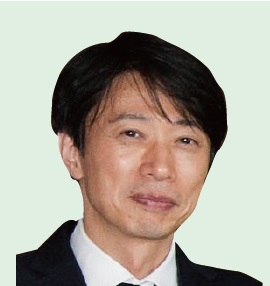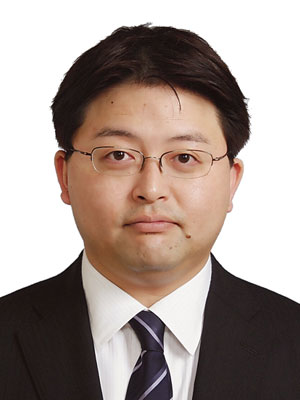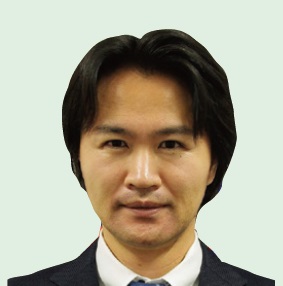Division of School Improvement and Policy Studies
Course Description
Our concerns are research and development of education policy, educational administration, educational finance, politics of education, and school management. We also aim to train researchers who can conduct policy planning and evaluation, administration and finance system reform, and management, and supervision, as well as public officials in leader positions (education administration officials, school administrators, teacher consultants, and others). The Division was created in 2006 after reorganization of the former Division of Education Administration. The interdisciplinary nature of the field has resulted in much active collaboration and cooperation with other research fields and institutions.
Staff

Masaaki KATSUNO
Professor (School Leadership and Management)
Faculty member of the Division of Educational Practices and Policies
My research areas include education policy, school leadership and management, and teacher education. In particular, I have a continuing interest in teacher evaluation policies and practices, and currently value-added approaches to teacher evaluation that are increasingly becoming popular around the world attract my attention. I am also doing research into professional learning networks or communities across as well as within Japan’s high schools.
I am interested in working with students from different backgrounds who are keen to conduct research in a wide range of areas that roughly match mine. Those students who share with me concerns about democracy, social justice, equity, quality and effectiveness in schooling will be particularly welcome.
Publications
- Teacher Evaluation Policies and Practices in Japan : How performativity works in school, New York ;Routledge 2016.
- Katsuno, M. (2012). Teachers’ professional identities in an era of testing accountability in Japan: The case of teachers in low-performing schools, Education Research International, 2012, Article ID 930279, 8 pages.
- Katsuno, M. (2010). Teacher Evaluation at Japanese Schools: an examination from micro-political or relational viewpoint, Journal of Education Policy, 25(3), pp.293-307.
- Katsuno, M. (2003). The ideas and policies of teacher evaluation, Tokyo: Eidell Kenkyujo, 172p. (in Japanese)

Yusuke MURAKAMI
Professor (Education Politics and Policy);
Faculty member of the Division of Educational Practices and Policies
My research interest is educational politics and policy, especially in Japan’s education board system and national/local education policy. Education policymaking requires both democratic control and a high degree of professionalism. However, these elements do not always work in conjunction, and we must balance the two. I have examined the school board system in Japan that aims for the checks-and-balances system and have analyzed how the dynamic between democracy and professionalism causes different policy outcomes.
Recently, I am also interested in comparative education politics and policy. Using data from international comparative surveys, I hope to analyze the impact of politics on education and the impact of education on politics from a view of comparative politics.
Publications
- Murakami, Y. (2019) National and Local Administration” In Kitamura Y, Omomo T, Katsuno M eds. Education in Japan, Springer.
- Murakami, Y. (2013) Rethinking a Case Study Method in Educational Research: A Comparative Analysis Method in Qualitative Research, Educational Studies in Japan, (7) 81-96
- Murakami, Y. (2011) Political Science of Educational Administration, Tokyo: Bokutaku-sha, 328p. (in Japanese)

Akihiro HASHINO
Associate Professor (Education Policy and Finance);
Faculty member of the Division of Educational Practices and Policies
My research focuses on the political and economic aspects of administration and finance, and policy of education. While there are an infinite number of goals imposed on education by society, there are only a finite number of resources such as budget, personnel, and time to realize them. Because of the finiteness and scarcity of these resources, democraticness and efficiency are inevitably required in the policy process. I am engaged in theoretical and empirical research based on my awareness of the issues of how such democratic decision making and efficient policy implementation can be achieved, and how democraticness and efficiency can be understood and measured in the field of education policy.
I am also strongly interested in “evidence-based policy making”, and considering not only the methods of policy evaluation but also the influence and role of research in policy and political processes.
Publications
- Hashino, A. (2016) Politics and Policy on Education Finance in the Modern Era, Okayama: Daigaku Kyoiku Shuppan, 360p. (in Japanese)
- Murakami, Y. and Hashino, A. (2020) Educational Policy and Administration, Tokyo: Yuhikaku, 270p. (Co-author) (in Japanese)
- Hashino, A. (2021) “The Effects of Long Working Hours on the Physical and Mental Health of Beginning Teachers: Novel Identification Strategies and Endogeneity, Nonlinearity, and Heterogeneity,” in Kawakami, Y. eds., Workplace Adaptation and Professional Development of Teachers: Analysis and Feedback from a Longitudinal Survey of Teachers, Tokyo: The Earth Kyoiku Shinsha. (Contributing author)(in Japanese)